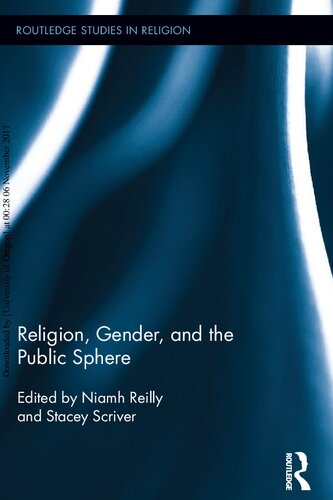

Most ebook files are in PDF format, so you can easily read them using various software such as Foxit Reader or directly on the Google Chrome browser.
Some ebook files are released by publishers in other formats such as .awz, .mobi, .epub, .fb2, etc. You may need to install specific software to read these formats on mobile/PC, such as Calibre.
Please read the tutorial at this link: https://ebookbell.com/faq
We offer FREE conversion to the popular formats you request; however, this may take some time. Therefore, right after payment, please email us, and we will try to provide the service as quickly as possible.
For some exceptional file formats or broken links (if any), please refrain from opening any disputes. Instead, email us first, and we will try to assist within a maximum of 6 hours.
EbookBell Team

0.0
0 reviewswatermarked
The re-emergence of religion as a significant cultural, social and political, force is not gender neutral. Tensions between claims for women’s equality and the rights of sexual minorities on one side and the claims of religions on the other side are well-documented across all major religions and regions. It is also well recognized in feminist scholarship that gender identities and ethno-religious identities work together in complex ways that are often exploited by dominant groups. Hence, a more comprehensive understanding of the changing role and influence of religion in the public sphere more widely requires complex, multidisciplinary and comparative gender analyses.
Most recent discussion on these matters, however, especially in Europe, has focused primarily on the perceived subordinate status of Muslim women. These debates are a reminder of the deep interrelation of questions of gender, identity, human rights and religious freedom more generally. The relatively narrow (albeit important) purview of such discussions so far, however, underscores the need to extend the horizon of enquiry vis-à-vis religion, gender and the public sphere beyond the binary of ‘Islam versus the West’. Religion, Gender and the Public Spheremoves gender from the periphery to the centre of contemporary debates about the role of religion in public and political life. It offers a timely, multidisciplinary collection of gender-focused essays that address an array of challenges arising from the changing role and influence of religious organisations, identities, actors and values in the public sphere in contemporary multicultural and democratic societies.